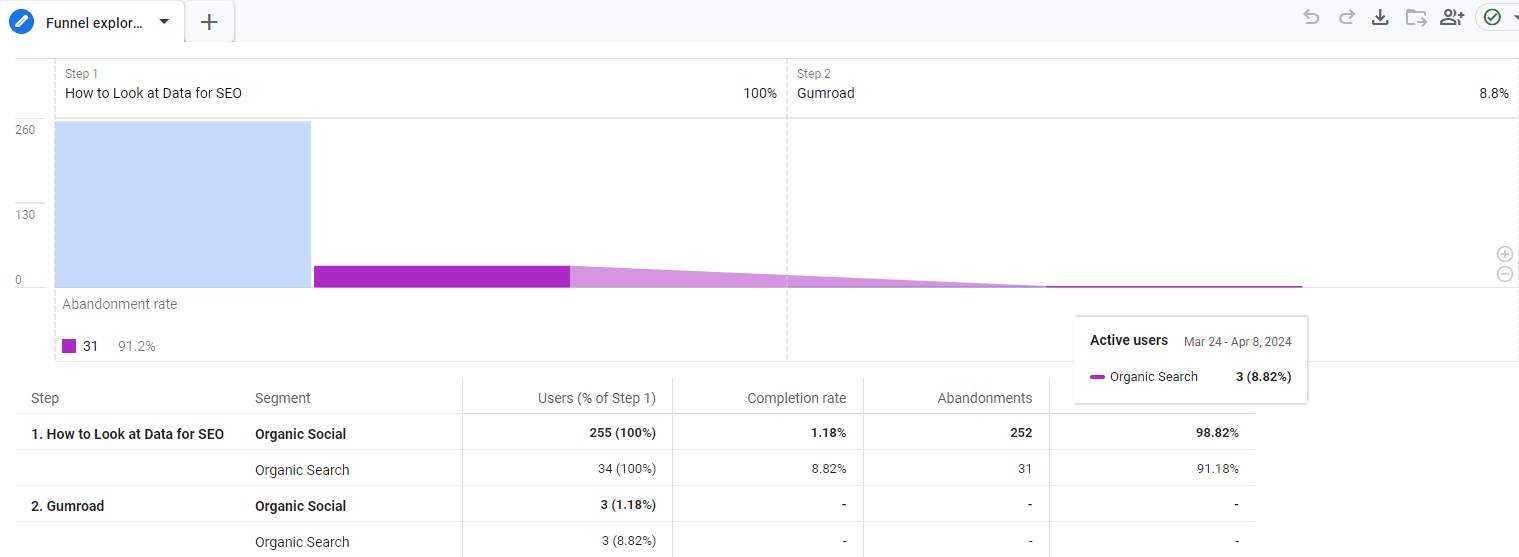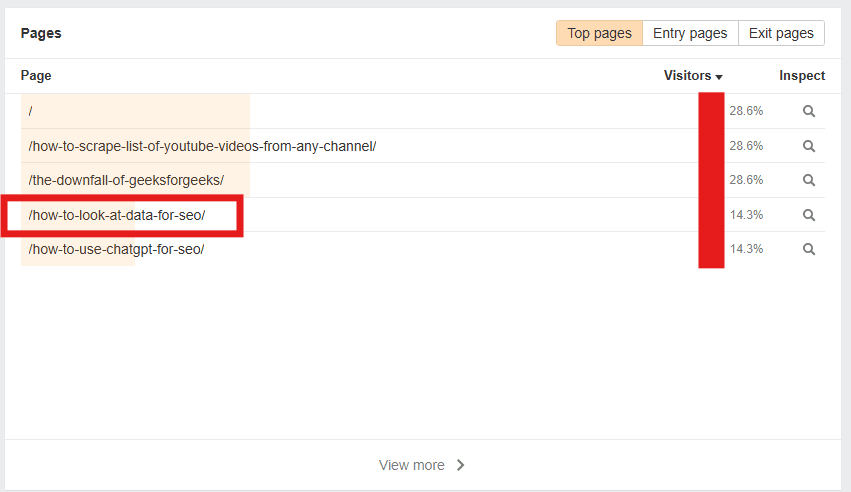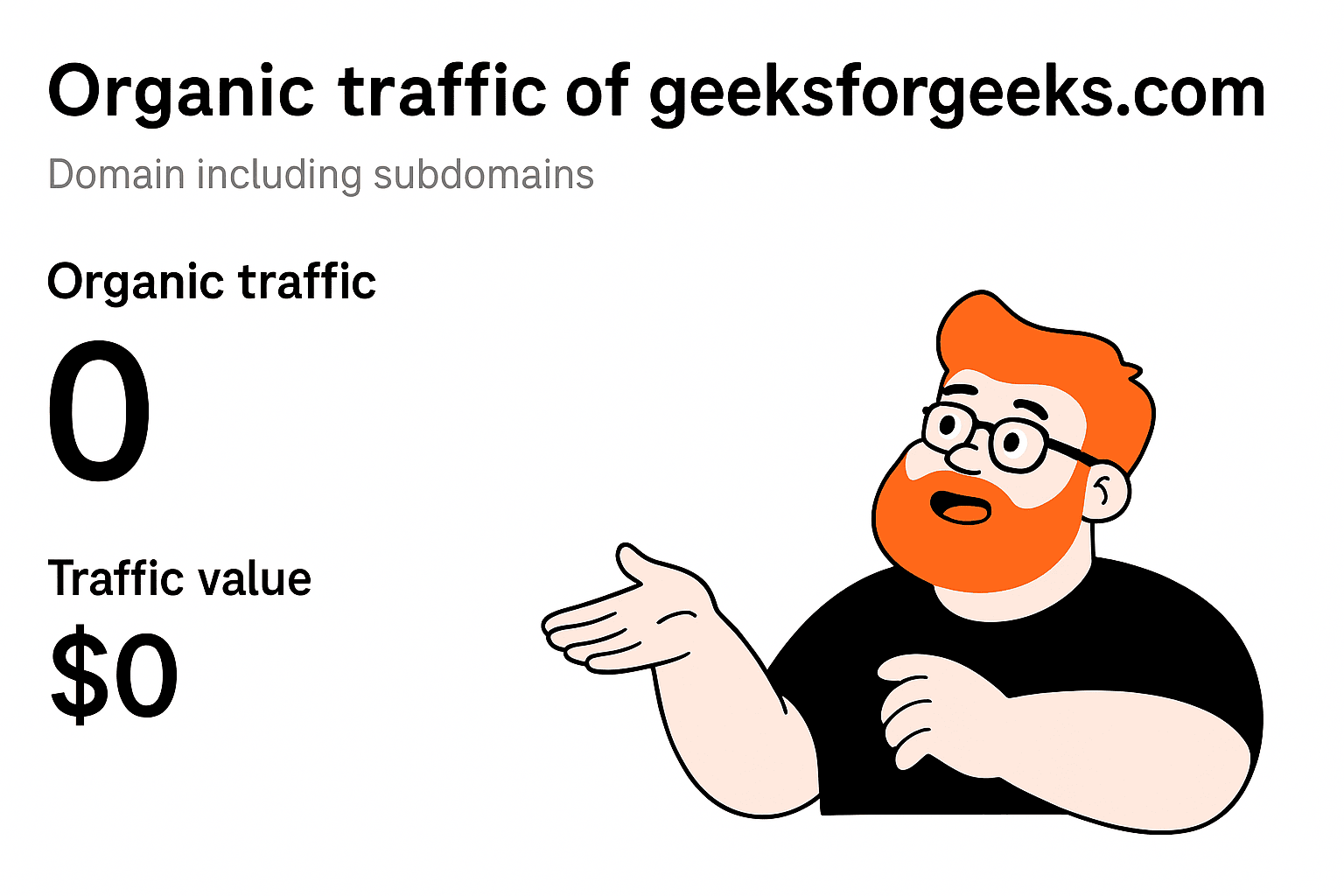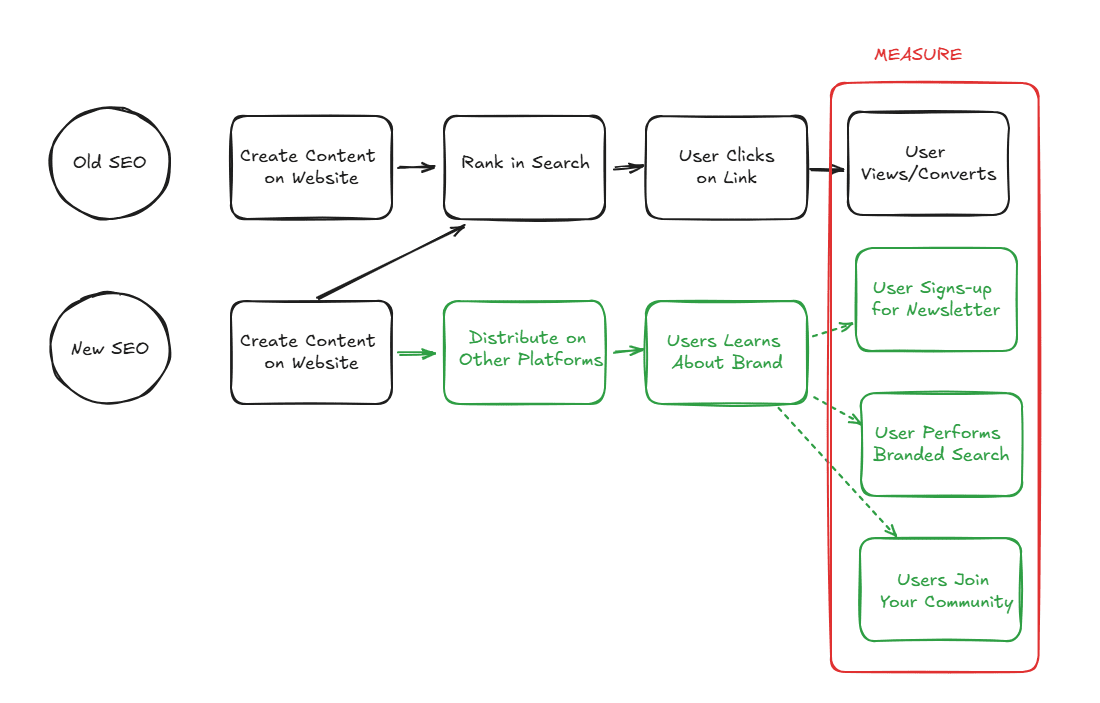The SEO ROI of Blog Content

In marketing, we are obsessed with attribution and forecasting so much to build business cases - which is a fair ask btw - that sometimes, we hinder our progress and limit ourselves.
Challenges of Conversion Attribution By Channel
I remember one time in the past, for a personal project, I ran some Facebook ads for like a month and then paused the ads and all marketing efforts. For weeks after, I still got conversions, even though no more ads were running or other marketing efforts. The ROI of the ads was more than I thought and the attribution of this can have been complicated if I was running other marketing efforts.
Another similar problem for SaaS businesses is, people can request a demo in January, for example, but convert 2 months later.... finding how many of the January signups actually ended up converting is very difficult, and gets more difficult when you want to sort this by channel too.
I think this is why some marketers - while they still build business cases and do forecasts - recommend:
The SEO Riddler Newsletter
Join the newsletter to receive the latest updates in your inbox.
Building the Case for Blog Posts
That leads us to another discussion.
I had an e-commerce client in the past once reach out asking to see "the revenue per page of the blog". I think this was the first time I encountered this question. I explained to them conversions don't usually happen on blog pages, so if we're going to evaluate the value of blog pages based solely on bottom-of-funnel conversions, the numbers are not our friend here!
Similarly, I was building an SEO strategy for a SaaS recently and the content strategy was built on optimizing existing blogs and creating new blog content. Of course for an SEO strategy you need to forecast potential impact in terms of conversions. If you pull the conversion rate for organic traffic to blog pages from GA4, again, the numbers won't look good. So, I left a note, that we need to find a different way to measure the business value of blog pages.
Blogs are not where users usually convert*. Although not impossible and conversions definitely can and do happen on blog pages, the conversion rate of blog pages is usually less than product pages.
*The conversions I mean here are bottom-of-funnel conversions like purchases, filling a contact sales form, and requesting a demo. Other conversion types like newsletter signup or download templates can happen on the blog with much higher conversion rates of course.
Blogs are intrinsically not created for bottom-of-funnel conversions/sales.
We create blog posts for many other reasons, like:
- Establishing the brand as a reliable source of information on a topic/theme
- Capturing top-of-funnel searches and introducing new users to the brand (awareness)
- Capturing middle-of-funnel searches, building more brand loyalty, and potentially funneling users to make the purchase decision and convert to customers.
- For bottom-of-funnel conversion/money pages to rank, you need to establish a topical authority and create supporting content, blog content is essentially in this situation supporting the performance of bottom-of-funnel conversion/money pages in search.
- Blog content can be repurposed and used as social media posts, newsletters, etc...
- Blog content is your opportunity to communicate with your customers and build some type of relationship without trying to directly sell them something. Basically, you want them to know, remember, and love your brand.
The ROI of Blog Posts to the Business
So that made me think, how can we demonstrate the "business value" of blog pages? How about we look at the percentage of visitors that land on those blog pages from Organic search, spend some time on the website, and then land on a product page or convert?
Let's have an example. For my own website (sara-taher.com), I want to know the percentage of users that landed on a blog post from organic, and then spent some time on the website doing "whatever", and then visited my gumroad page.
*Disclaimer: I don't have much on my gumroad page at the moment. This is something I may work on in the future when I have more time!
How to track SEO traffic to blog ROI using GA4
- Go to your GA4 account and select Explore >>> Funnel Exploration

- On the menu on the left, click the "+" in segments to add an Organic Search segment. I also created another segment for "Organic Social" to compare the 2 funnels. Drag and drop those 2 segments to the "SEGMENT COMPARISONS" section in the dashboard

- Now, let's create the funnel we want to explore! For my website, I decided I wanted to see how many users landed on "How to look at data for SEO" blog, spent some time on the website doing anything (note the "indirectly followed by" in the screenshot below) and then visited my gumroad page. To do this:
- Click on the magic pen next to "Steps".
- For step 1, I selected page title and filtered by the blog post page title.
- Step 2 - indirectly follows step 1 - user visits the URL to my gumroad page.

- Here's the final result. Make sure you have the correct date range that you need. Just by hovering over step 2, you can see the percentage of users that converted from organic social (or search, depending on where you hover) after landing on the blog post I specified.

In the report above you can see for example that over 8% of people that landed on that blog from organic search checked my gumroad page, vs. 1.18% of users came from organic social.
In this context, we can see that blog posts can be valuable to a business's bottom line. Now blog traffic seems to have more value than we thought. If I wanted to get the conversion rate of those blog pages directly it would be a solid zero, but now I know what traffic is more valuable and drives visits to my gumroad page and what is the conversion rate for that (which is something I may want to optimize in the future!).
Using this information, you can build a better case for investing in blog content and show the value of SEO traffic beyond immediate conversions.
Hope you liked this blog and let me know your thoughts!
The SEO Riddler Newsletter
Join the newsletter to receive the latest updates in your inbox.



